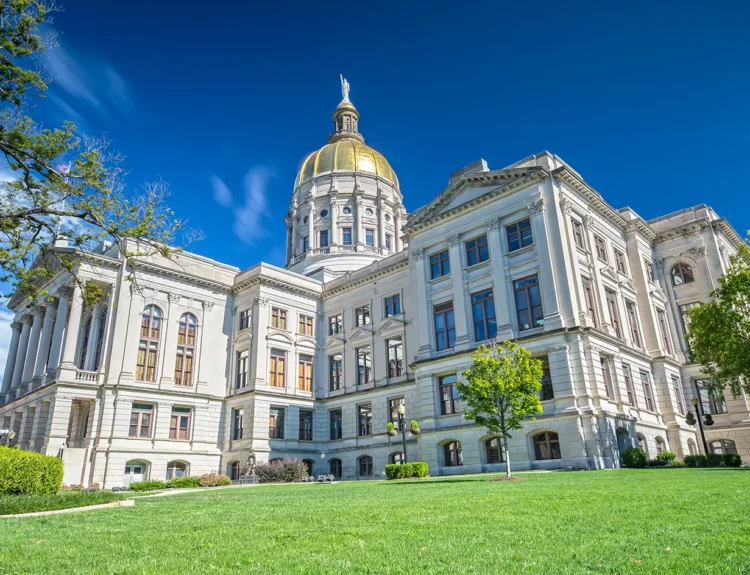Over the years many of you have heard me list some of my “ugly words” that I claim should never be used in the business of self-storage. On that list for the last several years has been the term “climate control.” While it may not be a term to necessarily banish from your self storage vocabulary, it is one that must be approached with caution and perhaps a thought toward changing the term to “temperature” or “temperature and humidity controlled.”
Let’s start with the problem. The term “climate” is a noun meaning “The meteorological conditions including temperature, precipitation, and elements, and wind that characteristically prevail in a particular region” (American Heritage Dictionary of the English Language, New College Edition). When you provide in your rental agreement or you advertise that you have climate control, you are advertising that you have usurped Mother Nature and have the ability to control the elements of your region including wind and rain. This is not in fact what you are doing, you are regulating perhaps the heat, and/or the chill, perhaps the humidity, and thus you are offering “Temperature” or “Temperature/Humidity Control” in the premises. If you are heating or cooling, you might want to call it “Heated” or “Cooled” space (which is not humidity controlled).
The real problem is that there has never been a national or state definition of what the term “climate control” or “temperature control” means. You end up with a potential for misconception by the consumer as to what you are providing and what the consumer expects. Let me give an example: a customer calls Facility “A” and asks for a price on a 10×10 climate controlled unit, the owner responds with a positive sales pitch stating that their facility has heating and air conditioning with redundant systems such that if one heater or air conditioner breaks there is enough capacity in the system to provide heating and air conditioning until the main system can be repaired. The facility is kept at a perfect 72˚ regardless of the weather because the facility is so well insulated, but none of that really matters if you cannot control humidity. This facility has installed a state-of-the-art humidity control system which maintains a perfect 54% relative humidity regardless of whether or not the facility is being heated, cooled, or is just running the fan. All of these systems are backed up by a natural gas powered backup generator, so reliability is practically guaranteed. The operator says all of this only costs $150 per month. The same customer calls Facility “B” and asks for the price on a 10×10 climate controlled unit and is told it is $100 per month. The problem is the second owners’ definition of climate control might be that there is a big exhaust fan which he turns on whenever the temperature in the facility gets above 90˚ to circulate the air. If the customer does not inquire further and moves his goods into Facility B, the customer will be gravely disappointed to later find out he is not getting the 72˚, 54% humidity year round system backed up by a redundant system and generators like the space he could have rented at Facility A. This is because the customer would have thought that all facilities are climate controlled the same way. The exception may be the services provided at Facility “A.” In fact I would venture that for as many different facilities that do offer climate control there are probably almost as many different definitions of climate control.
This is why is it is so important to disclose in your rental agreement, if someone is renting a temperature or climate controlled unit from you, what exactly you will be providing for the additional rent. That is, what do you contractually agree is the definition of climate/temperature control? Either by rental agreement clause or addendum, you must advise the occupant what it is you will be providing, heating, cooling, or both, and/or humidity control. Also in southern and western areas of the country, self-storage facilities use swamp coolers. These coolers merely keep the temperature inside the building about 10˚ cooler than the outside ambient temperature, thus it is hard to represent a temperature range you, as operator, will maintain because all you can really do is keep the facility 10˚ cooler than the outside ambient temperature. Humidity control, by virtue of the fact that the air conditioner will be running enough to remove enough humidity to keep the goods from being moist, is something different than what the term humidity control means with a special system that adds or removes humidity year round.
For all of these reasons it is easy to see why the consumer could be confused by the term “climate control.” Another problem is people who rent climate controlled units expecting that this term means their property will not get moldy. If you are heating in the winter but not cooling in the summer it is possible for moisture to accumulate and cause mold. If you are in a moist climate anyway, the chance of mold is even greater. Of course, if someone brings items wet or damp into a self storage unit it really does not matter how much climate or humidity control you have. A cold dark unit is going to breed mold. That is why you also need disclosure about mold, the possibility of mold and ways to avoid mold during storage included in your rental agreement.
The problem of the lack of a definition of the term climate control has gotten the attention of several different state legislatures. While there are a few states considering adding definitions of temperature or climate control to their state self-storage statutes, there is one state, Nevada that now has a statute regarding advertising of a climate control for storage of personal property:
(NRS 597.890). The Statute provides: (1) the owner of a facility for the storage of personal property or a person acting on his behalf shall not advertise that the facility is “climate controlled” unless the advertisement specifies the range of the minimum and maximum temperature and humidity within which the facility is maintained; (2) if an owner or a person acting on his behalf fails to indicate the range of temperature and humidity of a facility in the advertisement that refers to it as being “climate controlled” or fails to maintain the temperature and humidity of the facility within the advertised range, the owner is guilty of a misdemeanor and is liable to the occupant for any damages that are caused to the occupant’s personal property as a result of the extremes in temperature or humidity not withstanding any contract provision in the rental agreement.
This Statute requires Nevada owners, if they are going to refer to “climate control” in advertising to state exactly what they mean by temperature and/or humidity control in the advertisement. While I might agree that if you fail to truthfully advertise what you mean by climate control there should be some sort of civil sanction, I cannot agree that failure to advertise accurately or worse, failure to maintain the proposed range of temperature or humidity that you stated in your advertisement, should be deemed a criminal act, but it is in Nevada, and it is only a matter of time before other states follow suit. Other states are considering legislating actual range of temperatures and humidity in order to allow yourself to be called “climate controlled.”
While simply switching the advertising in Nevada to “temperature controlled” may or may not help you avoid this Statute, switching to one or more of the terms “temperature controlled,” “heated,” “cooled,” and/or “humidity controlled” are actually a more accurate description of what you are doing. I recommend it. You should define in your rental agreement exactly what you are mean by climate or temperature controlled and make sure there is plenty of language in your rental agreement to discuss the “what ifs” that may happen if the systems that provide the temperature or climate control break or fail. This language also needs to cover the potential eventualities of storms, such as hurricanes or tornadoes, black-outs, brown-outs, or other disasters that may befall your facility which may prevent the systems from working. As an example, I have a client in Gulf Shores, Alabama who right after opening a new facility lost his roof to a hurricane. Obviously climate control was not going to function well at that time.
The industry as a whole must work to define this term or these terms before more unreasonable legislation is propagated.
Jeffrey J. Greenberger is a Partner with the law firm of Katz Greenberger & Norton LLP in Cincinnati, Ohio and is licensed to practice in the states of Ohio and Kentucky. Mr. Greenberger’s practice focuses primarily on representing the owners and operators of commercial real estate, including self storage owners and operators.
This column is for the purpose of providing general legal insight into the Self-Storage field and should not be substituted for the advice of your own attorney.
Jeffrey’s new website, www.selfstoragelegal.com, contains Jeffrey’s legal opinions and insights into the self-storage industry, as well as an article archive.
Jeffrey is the legal counsel for the Ohio Self-Storage Owners Society, Inc., and the Kentucky Self-Storage Association, Inc., as well as a regular presenter at Inside Self-Storage Trade Shows. You can send your questions, comments, or suggestions for future topics to Jeffrey J. Greenberger at jjg@kgnlaw.com, or mail them to Jeffrey J. Greenberger, c/o Katz Greenberger & Norton LLP, 105 E. Fourth Street, Suite 400, Cincinnati, Ohio 45202, or you can reach Mr. Greenberger at (513) 721-5151.



